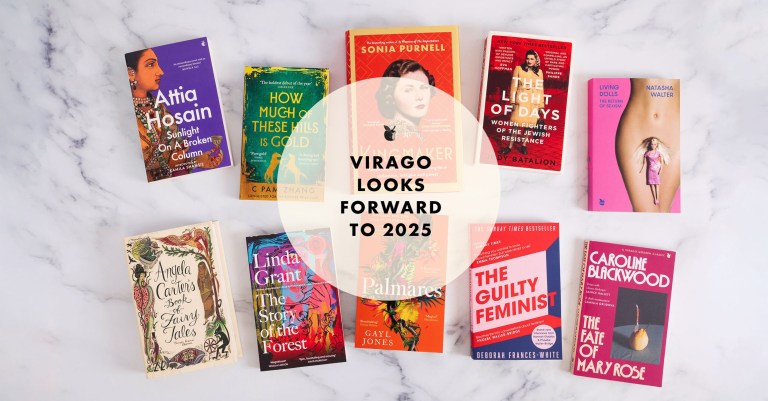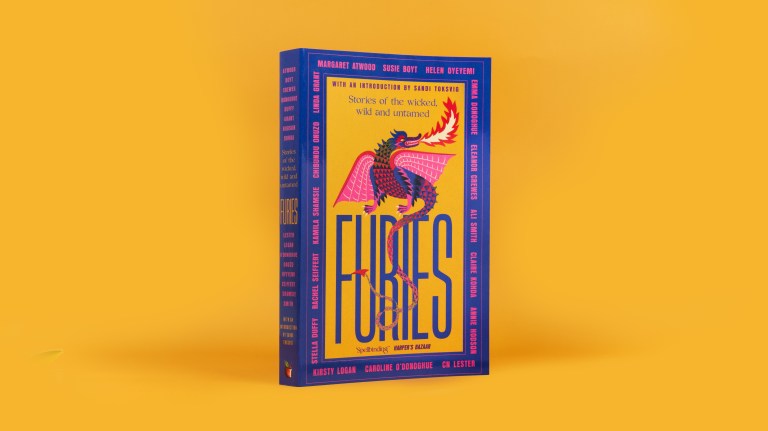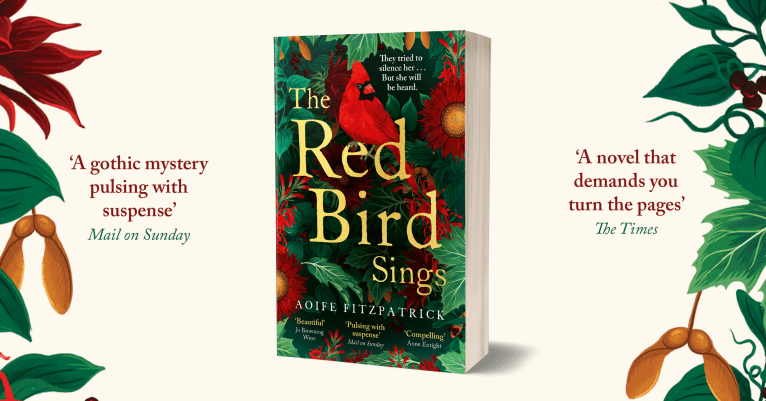Read an extract from Darling Days

Her
Chapter 1
Babygirl’s Gun
13 Third Avenue, New York City, 1982
She said he gave her the little gun because it was classy and elegant, like her. A feminine twist of metal and pearl. Lethal, like her. She kept it under her pillow “just in case.”
Her bed was, is, and always will be under an open window, this one looking out onto Third Avenue. In 1981, her pillow filled a head-pistol sandwich, but she doesn’t use a pillow now.
Then, she pulled her bleached blond, bombshell locks into a ponytail when she slept, always with her man, Billy. Under a pile of blankets in the winter or sweating naked in the summer, but always with her man.
The window gaped like a loyal simpleton, beaten by the sun or drooling raindrops, but its mouth never closed. The window stayed open.
My mother’s world was a riot of improvisations, everything in flux and nothing predictable except the open window and the radio on. Rhythm in the air. “Life! In the air,” she’d say. It stays on. She would tape over the switch. Nobody fucks with Babygirl’s radio.
Later, she would say that there was never a gun in the house. She would swear to this, like a Mafia wife, blinded by passion or loyalty. Either way it wasn’t completely true. There was a gun under her pillow. Whether or not he pulled it out before they shot him, nobody knows.
Them



Chapter 2
Birth
Third Street between Second Avenue and the Bowery, late summer 1985
It was a full moon, the last night of August 1985. My mother told my father to turn the video camera on because the baby was coming.
It was sticky hot outside, the kind of air you can feel. She waded uptown through warm pudding, to a swimming pool in Hell’s Kitchen. Two weeks before, belly the size of a basketball, she had posed in a bikini at the Russian baths for a young photographer who told her that swimming was the best thing to loosen up her hips for birth. My mother had been swimming every day since.
Sounds travel differently in the summer. Horns are sharper, screams pierce, and catcalls work double time, trailing swinging booty shorts for blocks. In the mid-eighties, streetlights on Ninth Avenue winked on and off over sidewalks cluttered with garbage, the carts of fruit vendors, and the splayed bodies of crackheads, hugging the cement, sharp ribs laid bare in the heat.
Three lanes of headlights cut through the darkness, making Dick Tracy comic books out of countless shady instances of deals in doorways, pupils dilated from a thousand synthetic euphorias, uptown kids in Brooks Brothers and pearl earrings who thought coming to Hell’s Kitchen was coming “downtown” to cop. The beams backlit a fleet of muscle-bound tranny hookers, teetering back and forth on six-inch heels between twenty-dollar tricks. They carried box cutters in their garters in case tonight was the night some dumb motherfucker decided to let his Jesus guilt get the better of him after cumming on their miniskirt. At nearly six feet tall and broad in the shoulders, her eyes raw from the chlorine, Rhonna was perfectly camouflaged within the local wildlife.
They invented the word glamazon for women like my mother. Grace Jones had the same severity and stature. Mix one part unicorn, three parts thunderstorm, two parts wounded bull, and you’d have an approximation of the vibe my mother gives off. A wild tiger would be at a disadvantage in a fight. Bleached blond hair sliced at her chin, eyes crystal blue. Her head is carved for the shoulder pad look, all bones and lines, her face anchored by a Greco-Roman nose that dives into crimson lips, full and finely drawn, over ivories so impressive we call them her piano keys. Her muscles twist over her sleek bones like steel cables, and she leads with her chest like a native warrior, her hands made to grip a sword in battle.
The seventies and eighties were a primitive time in New York, a time of robbery, drugs, and rape, so a working model who favored miniskirts and skintight jeans had to be able to show her teeth. She learned to train a look on a man that could make him piss himself. She once carried a busted fluorescent tube through Midtown and shook it in the face of street thugs like a jagged spear.
But that evening, my mother was slow moving, vulnerable, if ever fierce. She looked like a teenager carrying a backpack on her front, because little aside from her belly had grown during the pregnancy. Her hair was swept back, her skin clear and radiant, glowing the way pregnant women do, with a sharp nose and a head of loose blond curls like Alexander. Her bright red denim Daisy Dukes hadn’t closed for weeks, so she wore them unzipped and rolled down. Maternity wear didn’t enter her universe.
As she walked toward a Times Square teeming with twenty-fivecent peep shows and bargin-bin hustlers waiting for daddies to make their night, a vendor stepped out from under his awning and said, “My god, I’ve never seen anything so beautiful!”
My parents lived on a notorious block in their day: Third Street, between Second Avenue and the Bowery, an address that is innocuous now. The barnacled gore of used needles and crack pipes, the sludge of despondency, waste, and murder, the freaky traces of poverty clawed into these crappy tenements have long since been bleached out and washed away.
My parents and their scene were there before the gleaming 7-Eleven and the thirty-dollar brunch specials, lounging in their high-waisted jeans, collars turned up, hair teased out, blasting rap and jazz and no wave from boom boxes. Before the East Village was referred to as “the NYU neighborhood,” you had to use a pay phone to call your dealer, and you had to shout up to windows to be let in.
The Bowery Hotel, now a glamorous weekend landing pad for movie starlets, used to be a twenty-four-hour gas station that served radioactive vindaloo on Styrofoam plates to my mother in the middle of the night. Two mangy dogs roamed between the pumps, so dirty and caked with exhaust grease that one’s fur had turned green, the other one’s blue.
The street was no picnic at the turn of the previous century, when immigrants packed each apartment, six to a room. But by 1985, even with the city broke and in chaos, at the tail end of punk, and in the midst of the AIDS and crack epidemics, Third Street stood out for the refinement of its violence, for its kaleidoscopic insanity.
Directly across the street from our building stood the largest men’s shelter in New York, which had turned the block into a dumping ground for homeless people from all over the country, the abscessed injection point for the nation’s addicted, vagrant, and mad, the Ellis Island of the criminally insane. America had been cutting loose its mental patients for a decade and blending them in with the detritus of society—the failed, the lost, the abandoned—and this toxic brew, refused at every backyard in the country, was being shipped in like barges of garbage and unloaded onto our street, making it the festering point for every fuck-up from as far away as Texas. The result was a low-key permanent riot.
My mother used to look out our window at the crowd, milling around like hypercharged ants, and say: “Look at ’em. America’s undiagnosed misfits. They’ve got to self-medicate to survive, and all they got to work with is hammers, dope, crack, and Night Train.”
And many did not survive. At night there were so many homeless people sleeping shoulder to shoulder that you could hardly see the sidewalk. Occasionally, in the morning, an ambulance would come to take away a “late sleeper,” leaving a gray silhouette in the concrete where the carcass had drained out.
On the corner opposite the gas station, the Salvation Army had set up a group home for delinquent boys, a half-way house for hopeless cases, which functioned like a prep school for life across the street. Weekly, a police car would pull up onto the sidewalk and two officers would lead a youth out of the building in handcuffs, nailed for robbing and raping a Japanese tourist in a stairwell somewhere.
To add to the stew, one avenue to the east, the infamous Hells Angels had their East Coast headquarters and clubhouse, and occasionally they would tear down the street, thirty to a posse, with no mufflers on their bikes, doing their best to get in a fight.
On the Fourth of July of every year, the Angels would blow up the block. A two-story American flag was strung from the north to the south side of the street, vibrating in earsplitting waves of psychotic heavy metal blasting from stadium speakers jammed into the clubhouse windows. One year an M-80 exploded in a closed trash can and a triangle of galvanized shrapnel tore through the neck of a local Puerto Rican kid, killing him on the spot.
The police did what they could to stay outside of a four-block radius from what they openly dubbed “the asshole of the universe.” We called it home.
Three and a half months before her dip in Hell’s Kitchen, in an apartment overlooking this miasma, my mother was up, at two in the morning, cooking herself something to eat. She had been working out feverishly for the last twelve weeks, trying to lose a stubborn little tire that had swelled around her waist. My father, staring at her in the darkness, saw her left hand draped protectively over her belly, and he knew immediately. It was pictured in a thousand frescos and altarpieces, this graceful, natural gesture of maternity.
“Rhonna, you’re pregnant. We’re having a baby.”
Without context, this could seem like a sweet moment, a wonderful development in a relationship between two young lovers perhaps looking forward to starting a family and realizing some picket-fence fantasy. Let me clear up that misunderstanding; my parents were just hot in the eighties. In fact, if we are going to grope around in the dark closet of existential responsibility, I blame the bathtub. A lot of relationships, and probably a lot of eighties babies, can be traced back to the tenement tub.
Allow me to explain: when you walked into a one-bedroom, railroad apartment in an old tenement, you entered directly into the kitchen. Across from you were the stove and a refrigerator, and two inches from your right elbow was an iron bathtub, encased in white porcelain, a shorty, with little lion’s-paw feet, from the turn of the century, crafted for a little person. In our apartment, there was a dark bedroom to the left and a sunny living room to the right.
People tend to underestimate the importance of a tub in the kitchen to establishing the sexual tone of a bohemian existence. It adds a whole new spice when friends take a bath while you’re cooking dinner. Sensual mayhem.
Carrying an armful of records and a bottle of whiskey, my mother was all legs and skimpy outfits when she showed up on my father’s doorstep. He had run into her before, once lying naked in a triangle of sunlight at the center of a cocktail party on the Upper West Side and another time on the street, clutching everything she owned in two plastic bags. Freshly widowed, she was being ravaged by agonies beyond her control and stalked by “friends” turned to suitors. Jailbirds who had started hanging around after the mysterious murder of her husband by the police.
A week after their second encounter, my parents were both kicked out of a nightclub for drinking out of their own stashes. Collared by a bouncer who knocked their heads together, they were tossed, laughing, into the street. By this point, my father had seen all he needed to cast her as the unhinged and suicidal Ophelia in an avant-garde film version of Hamlet, which he had been shooting for a few weeks.
At the apartment, “Hamlet” slept under a brown blanket in a corner of the living room among his paintings. He was a young friend of my father’s who I would later know as Uncle Crispy—a wiry kid with a wild head of curls, whose long eyelashes beat down over big, soft brown eyes, and who talked shit with the raspy voice of a hustler, like he had a million sentences he had to force through the bottleneck of his mouth before his dime ran out. Crispy spent his time avoiding his duties as leading man, flirting with Rhonna, and darting out of the house.
She, meanwhile, was up every night, howling old torch songs back into blasting speakers and swigging Johnnie Walker in nothing but a China red skintight sweater. This perpetually naked tornado of energy and beauty living in his kitchen caused a great deal of excitement in my father’s life. A great deal indeed. One thing leads to another, and they were rapidly entangled.
But over the next three stormy months, my father never really saw Rhonna sleep. As a matter of fact, he can’t recall ever seeing her lie down. Just getting her to sit was a feat, because she was the single most up, physically active person he had ever encountered. Her exercise routines were particularly radical and savage, as was her diet, and her devotion was to staying lean, lithe, and skinny as hell.
Lately, she had been especially vigilant in her exertions, because she felt that she was putting on a little extra weight around the middle, and that wouldn’t jive with the nightclub act she was rehearsing every day at a theater nearby. Her efforts to remove this bump had been unsuccessful, and so at two a.m. that night, from the darkness of his narrow bed my father watched her standing at the stove, shielding something deep within herself and in a flash he realized that she was protecting something: she was protecting me.
“What the fuck are you talking about? I know my own body. I’m not pregnant. If I was pregnant, don’t you think I’d be the first one to know?!”
He insisted, pointing out the evidence, and finally she went out to an all-night pharmacy for a pregnancy test. Within a few hours, they were confronted with an unfathomable truth: they were going to have a baby.
The next morning, shouting and yelping, my father ran straight to the home of his old friend Francesco and his wife, Alba, who had several kids. Alba, seeing that he was terrified, sat him down and in a perfectly relaxed, Italian way, said, “Ilya, this is not something you plan. Babies come with the bread. Each day, the bread is delivered, and one day it comes with a child. There is nothing to do but to accept it.”
When he protested that he hadn’t a clue how to care for an infant, she said, “Don’t worry. The child will teach you everything you need to know. The best teacher in the world is about to be born. They have a device called a scream, and they use it when anything is required. You will know exactly what to do, because the baby will tell you. All you have to learn to do is listen. Don’t dictate, listen.”
My parents never had the intention of being a couple or building any kind of domestic life together, but they made a pact that day: no matter what happened between them, they were going to care for this child, and failing that, they would at least make sure it would be cared for. They agreed: they would respect each other’s wildly different styles; they would never fight in front of the kid; and above all, they would never call in the law. No matter how bad it got, no judge would ever dictate what they needed to do with this child.
They explored all the options for a healthy birth, finally settling on a midwife and home delivery. My mother shelved the whiskey and focused her considerable energy on having the healthiest final trimester anyone has ever seen.
Which brings us back to that sweltering evening at the end of August. My father was standing on the corner of Third Street and the Bowery, talking to his friend Jean-Michel about his new fold-up bicycle. The mischievous young painter was wearing a full three-piece tweed suit, sweating profusely, and my father was lecturing him about the dangers of wool in such heat. Dismissing the mothering, JeanMichel nodded over his shoulder and said, “Maybe you should tend to your own garden.”
Turning, Ilya saw Rhonna coming through the traffic on their block. Carrying several bags, she was just slightly less concerned than usual with the cacophony around her, and she looked to be in pain. He rushed to her and, as he helped her upstairs, she told him it was beginning.
“I need to swim.”
Darling Days is published on 27/09/2016. Click here to get your copy.







